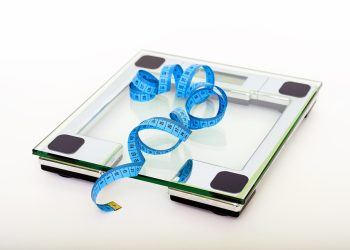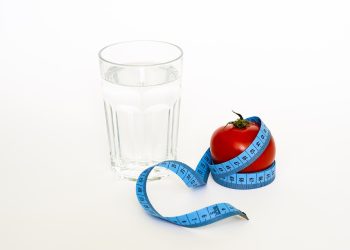Understanding Safe Weight Loss: Finding Your Ideal Pace
Embarking on a weight loss journey is a significant step towards improved health and well-being. However, navigating the vast sea of information can be overwhelming, especially when it comes to determining a safe and sustainable rate of weight loss. The question often arises: how much weight can I realistically and healthily lose per week?
This article delves into the science behind weight loss, exploring the factors that influence it and providing practical guidance on setting realistic goals to achieve lasting results without compromising your health. We’ll examine the potential dangers of rapid weight loss and offer strategies for adopting a balanced approach that prioritizes long-term success.
The Generally Accepted Guideline: 1-2 Pounds Per Week
For most individuals, a weight loss rate of 1 to 2 pounds per week is generally considered safe and sustainable. This recommendation is based on the principle that losing weight too quickly can lead to a variety of health problems, while a slower, more gradual approach allows your body to adjust and adapt more effectively.
Why 1-2 Pounds Per Week?
- Preserves Muscle Mass: Rapid weight loss often involves losing both fat and muscle. Maintaining muscle mass is crucial for boosting metabolism and overall strength. A slower rate encourages fat loss while minimizing muscle loss.
- Reduces Risk of Nutritional Deficiencies: Crash diets and extremely low-calorie intake can lead to deficiencies in essential vitamins and minerals. A balanced approach ensures you’re getting the nutrients your body needs.
- Minimizes Metabolic Slowdown: When you drastically cut calories, your body can enter “starvation mode,” slowing down your metabolism to conserve energy. This can make it harder to lose weight in the long run.
- Promotes Sustainable Lifestyle Changes: Gradual weight loss allows you to make lasting changes to your diet and exercise habits, increasing the likelihood of maintaining your weight loss in the future.
- Reduces Risk of Gallstones: Rapid weight loss can increase the risk of developing gallstones, a painful condition that requires medical intervention.
The Science Behind Weight Loss: Calories In vs. Calories Out
At its core, weight loss is governed by the principle of energy balance. To lose weight, you need to create a calorie deficit, meaning you burn more calories than you consume. This can be achieved through a combination of dietary changes and increased physical activity.
Creating a Calorie Deficit
A pound of fat contains approximately 3,500 calories. Therefore, to lose 1 pound per week, you need to create a deficit of 500 calories per day (3,500 calories / 7 days = 500 calories/day). To lose 2 pounds per week, you’d need a daily deficit of 1,000 calories. However, deficits this high are often unsustainable and may lead to the issues mentioned above.
It’s important to calculate your individual daily calorie needs based on factors such as your age, sex, activity level, and current weight. Online calculators and registered dietitians can help you determine an appropriate calorie target.
Factors Affecting Weight Loss
While the calorie deficit is the primary driver of weight loss, other factors can influence your results. These include:
- Metabolism: Your metabolic rate, the rate at which your body burns calories, varies depending on genetics, muscle mass, and other factors.
- Hormones: Hormones like insulin, cortisol, and thyroid hormones play a crucial role in regulating metabolism and weight.
- Age: As you age, your metabolism naturally slows down, making it more challenging to lose weight.
- Sleep: Lack of sleep can disrupt hormone balance and increase cravings, making it harder to stick to your weight loss plan.
- Stress: Chronic stress can elevate cortisol levels, leading to increased fat storage, particularly around the abdomen.
- Medications: Certain medications can affect weight gain or loss.
When is Rapid Weight Loss Acceptable?
While a gradual approach is generally recommended, there are certain situations where a more rapid rate of weight loss may be appropriate and medically supervised.
Medically Supervised Weight Loss Programs
Individuals with significant health risks associated with obesity, such as type 2 diabetes, heart disease, or sleep apnea, may benefit from medically supervised weight loss programs. These programs often involve very low-calorie diets (VLCDs) and close monitoring by healthcare professionals. These programs should NEVER be undertaken without medical guidance.
Pre-Surgery Weight Loss
In some cases, rapid weight loss may be recommended before surgery to reduce the risk of complications. This is typically done under the guidance of a surgeon and a registered dietitian.
Important Note: Even in these situations, rapid weight loss should always be medically supervised to minimize potential risks and ensure adequate nutrient intake.
The Dangers of Losing Weight Too Quickly
Rapid weight loss, often achieved through crash diets or extreme exercise regimens, can have detrimental effects on your health. Here are some potential risks:
- Muscle Loss: As mentioned earlier, rapid weight loss often leads to the loss of lean muscle mass, which can slow down your metabolism and make it harder to keep the weight off.
- Nutritional Deficiencies: Restricting your calorie intake too drastically can deprive your body of essential vitamins and minerals, leading to fatigue, weakness, and other health problems.
- Metabolic Slowdown: Your body can adapt to a very low-calorie intake by slowing down your metabolism, making it harder to lose weight and easier to regain it later.
- Gallstones: Rapid weight loss can increase the risk of developing gallstones, which can cause severe abdominal pain and require surgery.
- Electrolyte Imbalances: Crash diets can disrupt electrolyte balance, leading to heart problems, muscle cramps, and other serious health issues.
- Dehydration: Some rapid weight loss methods, such as water restriction or diuretic use, can lead to dehydration, which can be harmful to your kidneys and other organs.
- Irregular Heartbeat: In extreme cases, rapid weight loss can lead to irregular heartbeat or even cardiac arrest.
- Psychological Effects: Rapid weight loss can be associated with eating disorders and negative psychological effects, such as anxiety, depression, and body image issues.
Practical Tips for Safe and Sustainable Weight Loss
Adopting a healthy and sustainable approach to weight loss involves making gradual changes to your diet and exercise habits. Here are some practical tips to guide you:
Dietary Changes
- Focus on Whole, Unprocessed Foods: Emphasize fruits, vegetables, lean protein, and whole grains.
- Limit Processed Foods, Sugary Drinks, and Unhealthy Fats: These foods are often high in calories and low in nutrients.
- Control Portion Sizes: Use smaller plates and bowls to help you manage your portions.
- Eat Mindfully: Pay attention to your hunger and fullness cues and avoid eating mindlessly in front of the TV or computer.
- Stay Hydrated: Drink plenty of water throughout the day.
- Plan Your Meals: Planning your meals ahead of time can help you make healthier choices and avoid impulsive eating.
- Don’t Skip Meals: Skipping meals can lead to overeating later in the day.
Exercise Recommendations
- Aim for at Least 150 Minutes of Moderate-Intensity Exercise Per Week: This could include brisk walking, jogging, swimming, or cycling.
- Incorporate Strength Training Exercises: Strength training helps build muscle mass, which can boost your metabolism and help you burn more calories. Aim for at least two strength training sessions per week.
- Find Activities You Enjoy: Choosing activities you enjoy will make it more likely that you’ll stick to your exercise routine.
- Start Slowly and Gradually Increase Intensity: Avoid pushing yourself too hard, especially when you’re first starting out.
- Listen to Your Body: Rest when you need to and don’t push yourself if you’re feeling pain.
Lifestyle Modifications
- Get Enough Sleep: Aim for 7-8 hours of sleep per night.
- Manage Stress: Find healthy ways to manage stress, such as yoga, meditation, or spending time in nature.
- Seek Support: Surround yourself with supportive friends and family members who can encourage you on your weight loss journey.
- Track Your Progress: Keeping track of your progress can help you stay motivated and identify areas where you need to make adjustments.
- Be Patient and Persistent: Weight loss is a journey, not a race. Be patient with yourself and don’t get discouraged by setbacks.
The Role of Professional Guidance
If you have any underlying health conditions or are unsure about the best approach to weight loss for you, it’s always a good idea to consult with a healthcare professional, such as a doctor or a registered dietitian.
Benefits of Professional Guidance
- Personalized Advice: A healthcare professional can assess your individual needs and provide personalized recommendations based on your health status, lifestyle, and goals.
- Medical Supervision: If you have any underlying health conditions, a healthcare professional can monitor your progress and make adjustments to your plan as needed.
- Nutritional Counseling: A registered dietitian can help you develop a healthy and balanced eating plan that meets your individual needs and preferences.
- Behavioral Support: A therapist or counselor can help you address any emotional or psychological issues that may be contributing to your weight problems.
Conclusion
Safe and sustainable weight loss is a journey that prioritizes long-term health and well-being over quick fixes. While the allure of rapid weight loss can be tempting, it’s crucial to understand the potential risks and adopt a balanced approach. Aiming for a weight loss rate of 1-2 pounds per week, focusing on whole foods, incorporating regular exercise, and making gradual lifestyle changes are key to achieving lasting results. Remember to consult with a healthcare professional for personalized guidance and support. By prioritizing your health and well-being, you can embark on a weight loss journey that leads to a healthier, happier you.
Frequently Asked Questions (FAQs)
Q: Is it okay to lose more than 2 pounds per week?
A: While some individuals might experience initial weight loss exceeding 2 pounds per week, especially at the beginning of their journey, it’s generally not recommended as a sustainable rate. Consistently losing more than 2 pounds per week increases the risk of muscle loss, nutritional deficiencies, and other health problems. Consult with a healthcare professional if you have concerns.
Q: What if I’m not losing weight at all, even with diet and exercise?
A: If you’re not seeing results despite following a healthy diet and exercise plan, it’s essential to investigate potential underlying factors. These could include hormonal imbalances, medical conditions, medications, or an inaccurate assessment of your calorie intake and expenditure. Consulting with a doctor or registered dietitian can help identify the cause and develop a personalized strategy.
Q: Are weight loss supplements safe and effective?
A: The safety and effectiveness of weight loss supplements vary widely. Many supplements are not regulated by the FDA and may contain harmful ingredients or make unsubstantiated claims. It’s crucial to research any supplement thoroughly and consult with a healthcare professional before taking it.
Q: How do I maintain my weight loss after reaching my goal?
A: Maintaining weight loss requires continued effort and commitment. It involves sticking to a healthy diet and exercise routine, managing stress, getting enough sleep, and monitoring your weight regularly. It’s also important to be prepared for occasional setbacks and to have a plan for getting back on track if you regain weight.
Q: What’s the best type of exercise for weight loss?
A: The best type of exercise for weight loss is the one you enjoy and can stick to consistently. A combination of cardio exercises (e.g., running, swimming, cycling) and strength training exercises is generally recommended. Cardio helps burn calories, while strength training helps build muscle mass, which can boost your metabolism.
Q: How important is it to track calories when trying to lose weight?
A: Tracking calories can be a helpful tool for understanding your eating habits and creating a calorie deficit. However, it’s not essential for everyone. Some individuals may find it too restrictive or time-consuming. If you choose to track calories, use a reliable app or website and be sure to factor in all foods and beverages consumed.
Q: Can stress affect my weight loss efforts?
A: Yes, chronic stress can significantly impact your weight loss efforts. Stress can lead to increased cortisol levels, which can promote fat storage, particularly around the abdomen. Stress can also trigger cravings for unhealthy foods and make it harder to stick to your diet and exercise plan. Finding healthy ways to manage stress is crucial for successful weight loss.
Q: Is it possible to lose weight without exercise?
A: While exercise is highly beneficial for overall health and well-being, it is possible to lose weight through dietary changes alone. However, exercise can help you lose weight more effectively and improve your body composition (i.e., reduce body fat and increase muscle mass). It’s generally recommended to incorporate both diet and exercise into your weight loss plan.
Q: How often should I weigh myself?
A: Weighing yourself too often can be discouraging and lead to unnecessary anxiety. It’s generally recommended to weigh yourself no more than once a week, at the same time of day, and under the same conditions (e.g., after waking up and before eating or drinking). Focus on the overall trend in your weight rather than daily fluctuations.
Q: What are some healthy snack options for weight loss?
A: Healthy snack options for weight loss include fruits, vegetables, nuts, seeds, yogurt, and hard-boiled eggs. Choose snacks that are low in calories, high in fiber, and rich in nutrients. Avoid processed snacks, sugary drinks, and unhealthy fats.












